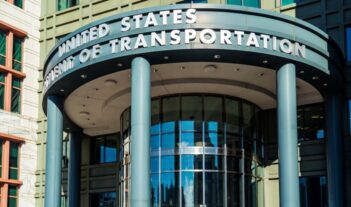
Agency proposes database of drug and alcohol tests for commercial drivers.
Driving is serious business, and driving under the influence of drugs or alcohol is a deadly societal problem. In 2011, studies revealed that over 1.2 million drivers were arrested for driving under the influence of alcohol or narcotics. Moreover, about one-third of those drivers had previously been arrested for driving under the influence.
The United States Department of Transportation’s (USDOT) Federal Motor Carrier Safety Administration (FMCSA) recently proposed a new rule that would establish a database of controlled substance and alcohol test result information for holders of commercial drivers’ licenses. The database would be accessible to current and prospective employers, with the driver’s consent. The proposed rule would require testing programs to report to FMCSA positive, adulterated, and substituted drug test results and positive alcohol test results, test refusals, and negative return-to-duty test results. Further, the proposed rule would require employers to report knowledge of alcohol or drug-related traffic violations issued while a driver was operating a commercial motor vehicle.
The agency’s proposal responds to the National Transportation Safety Board’s recommendation to FMCSA to develop a system that records drug and alcohol test results. The Board’s recommendations came after a bus crash that killed 22 passengers. Following the accident, the driver tested positive for marijuana and other drugs. Further investigation indicated that the driver failed to disclose prior positive drug tests to his employer.
The issue of nondisclosure of past alcohol and drug tests has not been limited to a single incident. The U.S. Government Accountability Office (GAO) issued a report detailing the regular occurrence of commercial drivers “job hopping” in order to circumvent the return-to-duty requirements after a failed drug or alcohol test. Rather than complete the requirements, these commercial drivers leave their current job, find employment elsewhere, and choose not to disclose prior test results.
The agency issued its recent proposal to increase road safety and ensure that commercial motor vehicle operators are complying with federal drug and alcohol regulations. The proposal aims to “help ensure dangerous drivers stay off the road,” according to U.S. Transportation Secretary Anthony Foxx. Moreover, Secretary Foxx indicated that the new regulation would encourage employers to hire drivers who comply with drug and alcohol driving laws.
Under current regulations, employers must conduct pre-employment drug testing. FMCSA contends, however, that the current system does not provide employers with enough information to ensure that commercial drivers who have previously violated drug or alcohol testing requirements are legally suited to return to work. The agency indicates that the shortcoming of current regulations could be remedied with a federal database of positive drug and alcohol test results. Such a database, the agency maintains, would assist employers in determining that drivers are legally qualified to perform safety-sensitive duties.
The proposed database would affect all FMCSA-regulated truck and bus companies, medical review officers, substance abuse professionals, and private, third-party USDOT drug and alcohol testing laboratories.
The proposed rule would also establish “terms of access” to the database. The proposal requires employers to search the database to ensure that current and prospective employees are in compliance with drug and alcohol laws. At the same time, however, the proposal ensures that employers only use the database to determine if a current or prospective employee is out of compliance and thus prohibited to operate a commercial vehicle.
Employers would be required, under the proposed rule, to continue conducting pre-employment screening of commercial drivers’ history of drug and alcohol tests. Further, employers would be required to search the database each year to determine if any information concerning the commercial drivers they employ exists on the database. If the employer discovers that information does exist concerning an employee, then the employer would be required to conduct a comprehensive search of the driver’s drug and alcohol test history.
However, the proposal requires both current and prospective employers to obtain written consent from the commercial driver before accessing the driver’s records in the database.
FMCSA estimates that the proposal would yield about $187 million in annual benefits due to increased safety and crash reduction and $186 million in annual costs, totaling a net benefit of $1 million. Among the costs, the agency projects that annual and pre-employment screenings would cost $38 million across employers, while obtaining consent from drivers would likely cost $35 million. The most significant cost, the agency predicts, would be an estimated $101 million required for drivers to complete the return-to-duty process after failing a drug or alcohol test.
After the FMCSA granted an extension, the comment period closed on May 21, 2014.



